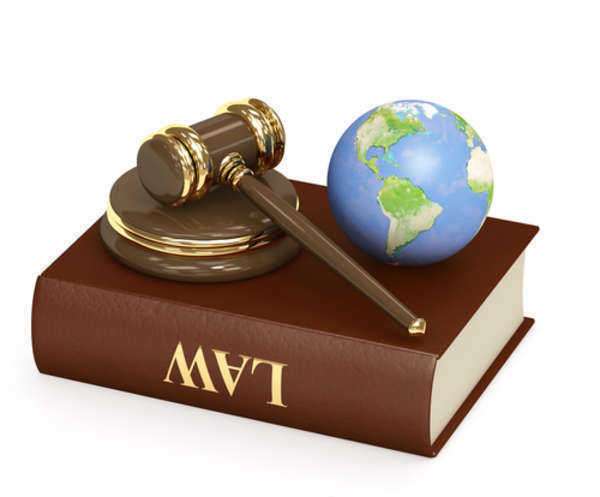Gay Marriage Laws in Louisiana

Gay Marriage Laws in Louisiana: A Complex Legal Landscape
Louisiana, a state known for its rich history and cultural diversity, has had a complex relationship with the legality of same-sex marriage. In this article, we will explore the gay marriage laws in Louisiana, examining the key developments, legal challenges, and the current status of LGBTQ+ rights in the state.
1. Ban on Same-Sex Marriage:
a) Constitutional Amendment: In 2004, Louisiana became one of many states to pass a constitutional amendment explicitly defining marriage as the union between one man and one woman. This amendment effectively banned same-sex marriage and denied legal recognition to gay couples.
2. Supreme Court Ruling and Legalization:
a) Obergefell v. Hodges: In a landmark decision in June 2015, the United States Supreme Court ruled that same-sex marriage was a constitutional right protected by the Fourteenth Amendment. This ruling invalidated the Louisiana constitutional amendment and granted same-sex couples the legal right to marry in the state.
b) Implementation and Acceptance: Following the Supreme Court ruling, same-sex marriages became legally recognized in Louisiana. The state was required to comply with the decision, ensuring that gay couples could access the same legal benefits and protections as heterosexual couples.
3. Ongoing Challenges and Controversies:
a) Religious Freedom Restoration Act (RFRA): To address concerns raised by opponents of same-sex marriage, Louisiana passed the RFRA in 2010. This act aimed to protect individuals and businesses from government action that substantially burdened their exercise of religious beliefs. However, there have been concerns that this law may be used to discriminate against LGBTQ+ individuals.
b) Adoption and Parental Rights: While same-sex couples in Louisiana can legally adopt children, there have been instances where religious-based adoption agencies claimed the right to deny placement based on objection to same-sex couples. These challenges highlight the ongoing struggle between religious beliefs and LGBTQ+ rights.
4. Continuing Advocacy and Progress:
a) LGBTQ+ Rights Organizations: Louisiana is home to several LGBTQ+ rights organizations that work towards promoting equality and inclusivity. These organizations engage in advocacy efforts, education initiatives, and legal challenges to ensure equal rights for the LGBTQ+ community.
b) Local Initiatives: Some cities in Louisiana, such as New Orleans and Shreveport, have enacted local ordinances to protect LGBTQ+ individuals from discrimination in employment, housing, and public services. These local initiatives represent steps toward increasing equality within the state.
Louisiana’s history with gay marriage laws has been a complex journey, from a constitutional amendment banning same-sex marriage to the Supreme Court’s landmark decision legalizing it. While same-sex couples can now legally marry in the state, challenges related to religious freedom and discrimination persist. Advocacy by LGBTQ+ organizations, along with local initiatives, continues to push for progress and equality. By fostering dialogue, understanding, and respect, Louisiana can create a more inclusive society that values and protects the rights of all individuals, regardless of sexual orientation or gender identity.
In Louisiana, gay marriage is currently illegal. In fact, Louisiana enacted the Defense of Marriage act like many other states that sought to define marriage in legal terms. In Louisiana, marriage is only legally recognized if it is a union between a man and a woman due to the language in DOMA. In addition, Louisiana passed legislation that banned gay marriage and civil unions from being recognized by the state, regardless of where they were performed.
However, A judge overturned the legislation based on the fact that it covers same sex marriages and civil unions in unison. That ruling in currently being challenged in court. Currently, the legality of domestic partnership is not being questioned. Currently, in Louisiana, marriage is only recognized if it is a union between an opposite sex couple.
In Louisiana, gay rights are in serious decline. At one time, Louisiana had discrimination laws in place to protect the LGBT community. However, those protections were allowed to expire and the state currently offers no protections against discrimination in the LGBT community. Louisiana does currently cover sexual orientation under the hate crime laws, however gender identity is not covered by the Louisiana law.
In addition, Louisiana does not recognize same sex marriages that took place in another state. Same sex couples are afforded no legal rights or responsibilities because of their relationship. In Louisiana, gay rights seem to lacking the attention that they deserve. While the south is traditionally known for being more conservative, they should still strive to provide all citizens with equal rights.
In Louisiana, marriage or any form of a legally recognized same sex relationships, is legally forbidden. In fact, the laws are clearly discriminatory in Louisiana. Gay couples are offered no legal rights due to their relationship and in fact, they are offered no protection against discrimination. In Louisiana, Gay couples and individuals are fighting a battle to obtain the most basic rights afforded to the general public.
While the LGBT is currently not protected from discrimination, one cannot expect that they will receive equal rights. In Louisiana, marriage may always be an issue for the gay community. In fact, the struggle for equal rights appears to be far from over in Louisiana. Marriage is a basic right but LGBT citizens need to fight for even the most basic rights in Louisiana, and many other states as well.



















